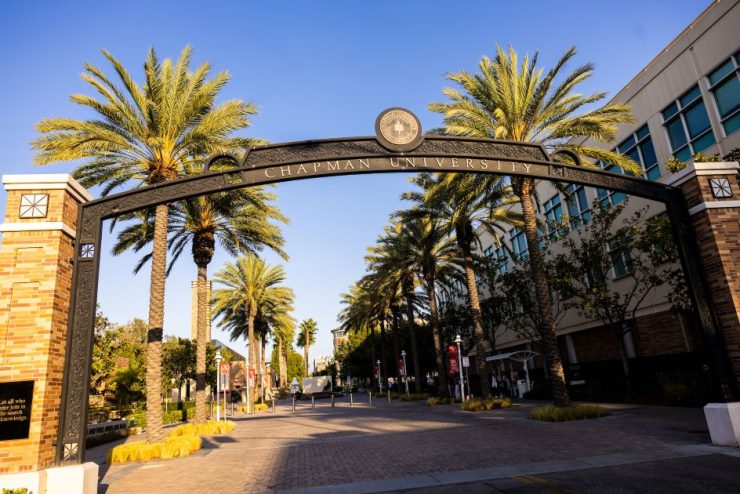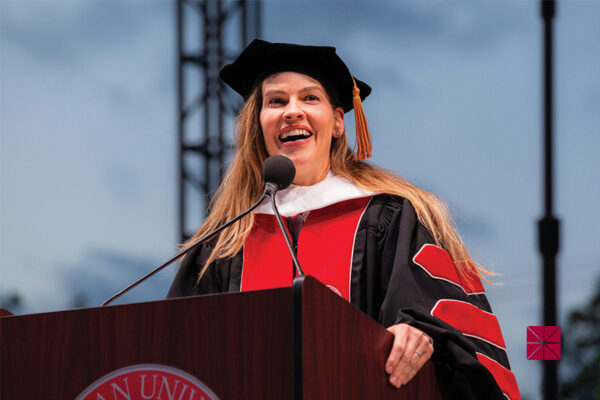A breakthrough study, published in Science Translational Medicine, features a biomedical engineering innovation with the potential to transform trauma care and surgical practices. Chapman University’s Fowler School of Engineering Founding Dean and Professor, Andrew Lyon, is a member of this multidisciplinary, multi-university scientific research team developing platelet-like particles that integrate into the body’s clotting pathways to stop hemorrhage. Sanika Pandit, an alumna of Chapman University, is also among the 15 authors in this research.
Addressing a longstanding gap in surgical and trauma care, this advancement holds potential for patient implementation. Patients experiencing acute trauma often require platelet transfusions to manage bleeding; storage constraints restrict their utility in prehospital scenarios. Synthetic platelet-like particles (PLPs) offer a potential alternative for promptly addressing uncontrolled bleeding.
The team has engineered platelet-like particles capable of traveling through the bloodstream and then homing to the site of tissue damage, where they augment the clotting process and then support subsequent wound healing. The approach addresses an unmet clinical need in trauma care and surgical practice.
“This work represents a pivotal moment in biomedical engineering, showcasing the tangible translational potential of Platelet-Like Particles,” remarked Lyon. “This remarkable collaborative effort has led to a solution that not only addresses critical clinical needs but also suggests a paradigm shift in treatment modalities.”
The study’s comprehensive approach involved rigorous testing in larger animal models of traumatic injury and illustrated that the intervention is extremely well tolerated across a range of models.
Ashley Brown, corresponding author on the study and an associate professor in the joint biomedical engineering program at North Carolina State University and the University of North Carolina at Chapel Hill, said, “In the mouse and pig models, healing rates were comparable in animals that received platelet transfusions and synthetic platelet transfusions and both groups fared better than animals that did not receive either transfusion.”
One of the study’s most significant findings is that these particles can be excreted renally, presenting a breakthrough in elimination pathways associated with injectable, synthetic biomaterials. The remarkable safety profile demonstrated in the study makes it safe and effective in trauma and surgical interventions. This advancement could potentially lead to improved medical treatments and outcomes for patients undergoing such procedures.
Lyon noted, “Given the success of our research and the effectiveness of the synthetic platelets, the team is pushing forward on a path aimed at eventually seeing clinical implementation of this technology.”
###
About Chapman University
Founded in 1861, Chapman University is a nationally ranked private university in Orange, California, about 30 miles south of Los Angeles. Chapman serves nearly 10,000 undergraduate and graduate students, with a 12:1 student-to-faculty ratio. Students can choose from 123 areas of study within 11 colleges for a personalized education. Chapman is categorized by the Carnegie Classification as an R2 “high research activity” institution. Students at Chapman learn directly from distinguished world-class faculty including Nobel Prize winners, MacArthur fellows, published authors and Academy Award winners. The campus has produced a Rhodes Scholar, been named a top producer of Fulbright Scholars and hosts a chapter of Phi Beta Kappa, the nation’s oldest and most prestigious honor society. Chapman also includes the Harry and Diane Rinker Health Science Campus in Irvine. The university features the No. 4 film school and No. 60 business school in the U.S. Learn more about Chapman University: www.chapman.edu.




